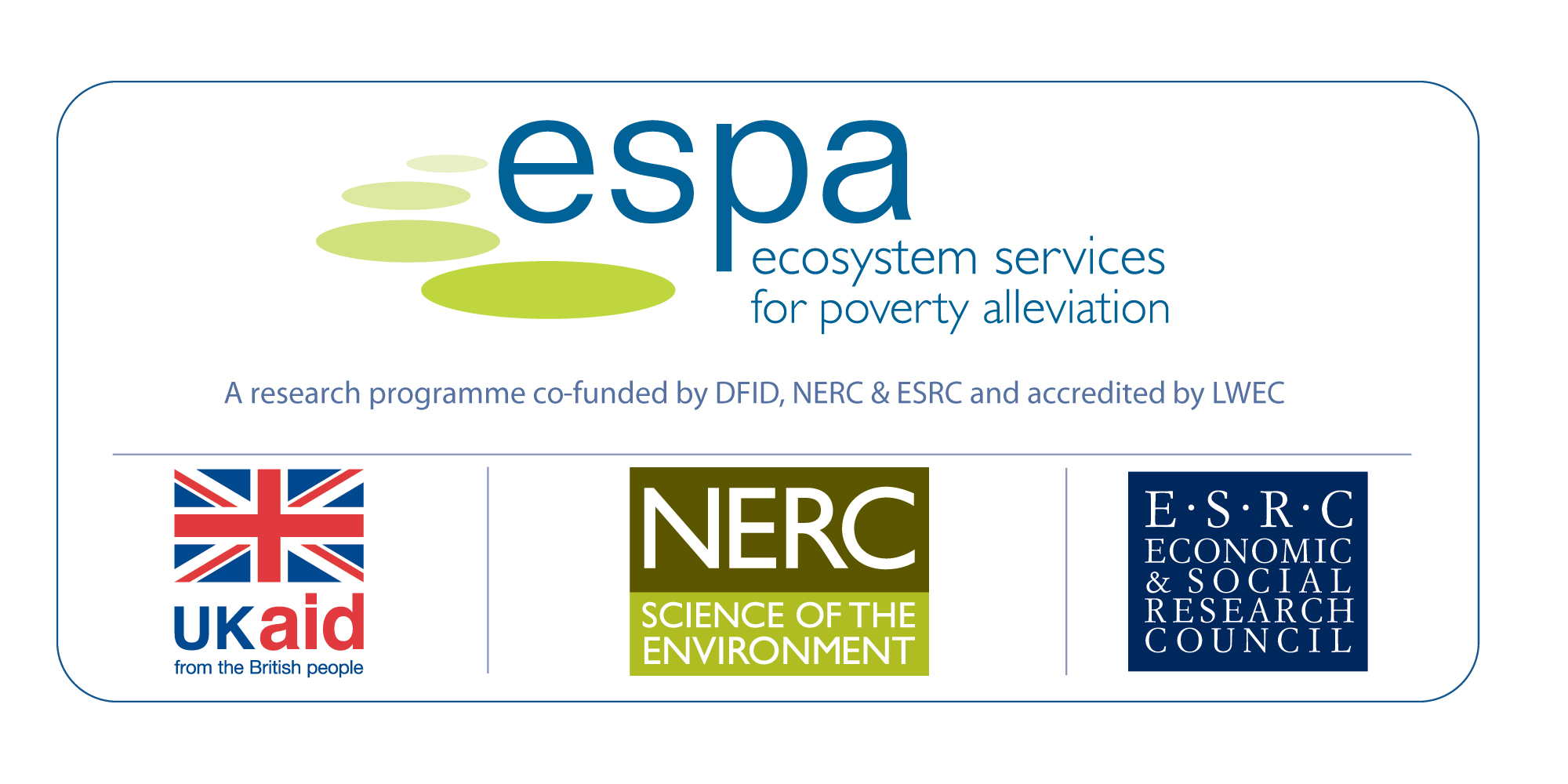The scenarios modelled in this website have been developed by the Stockholm Resilience Centre, as a component of its work for the Dynamic Drivers of Disease in Africa Consortium (DDDAC).
The bulk of the scenario modelling took place in June 2014 at a workshop in Naivasha, Kenya, with later work taking place at a workshop at the Institute of Development Studies, UK, in early 2015. The workshops included participants from DDDAC partners in Ghana, Kenya, Sierra Leone, Zambia and Zimbabwe, with expertise from the following fields: agricultural ecology, arbovirology, climate change, disease ecology, disease surveillance, entomology, environmental sciences, geography, GIS, microbiology, pollution, social anthropology, socioeconomics, statistical modelling, veterinary epidemiology, water management, wildlife and environmental conservation.
The Dynamic Drivers of Disease in Africa Consortium (DDDAC) is a multidisciplinary research programme designed to deliver much-needed, cutting-edge science on the relationships between ecosystems, zoonoses, health and wellbeing, with the objective of helping people move out of poverty and promoting social justice.
Its focus is four emerging or re-emerging zoonotic diseases in five diverse African ecosystems, each affected in different ways by ecosystem changes and having different impacts on people’s health, wellbeing and livelihoods: Henipavirus infection in Ghana, Rift Valley fever in Kenya, Lassa fever in Sierra Leone and trypanosomiasis in Zambia and Zimbabwe.
The Consortium comprises 20 partners spanning Africa, Europe and the US, and includes researchers in the environmental, biological, social, political, and human and animal health sciences.
The Dynamic Drivers of Disease in Africa Consortium (DDDAC) is funded by Ecosystem Services for Poverty Alleviation (ESPA). The ESPA programme is funded by the UK’s Department for International Development (DFID), Economic and Social Research Council (ESRC) and Natural Environment Research Council (NERC), as part of the UK’s Living with Environmental Change (LWEC) programme.
